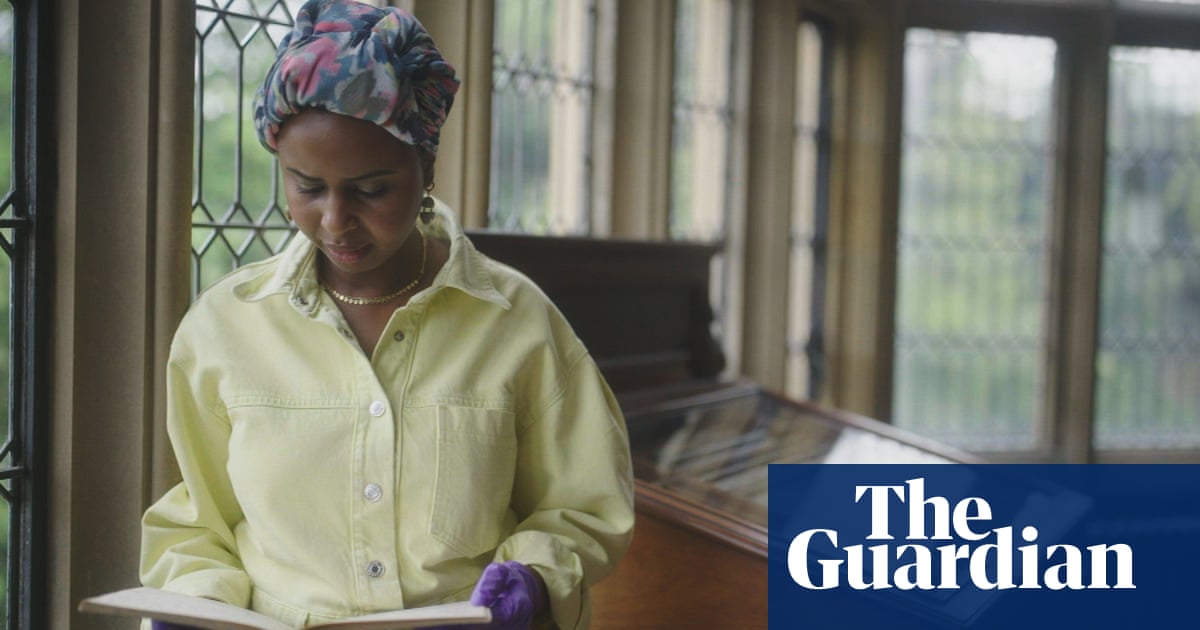
The listing of a deceased Bambuti infant in a museum’s collection for medical observation has been retracted following backlash from an author nominated for the Booker Prize.
Novelist Nadifa Mohamed will be hosting a new documentary on Channel 4 that delves into the past of “human zoos” in Britain. These zoos displayed African and Asian individuals to the general public, a practice that is now recognized as extremely racist.
Mohamed investigated the actions of explorer Col James Harrison during his research. In 1904, Harrison took a group of six Bambuti individuals from Africa to Britain for a tour, which has since been referred to as a “human zoo”.
In 1906, a Bambuti woman named Amuriape gave birth to a stillborn girl in Bedford. Mohamed and the documentary team discovered that the remains of the baby are currently held at the Hunterian Museum in London, which is part of the Royal College of Surgeons. These remains are catalogued and can be viewed for medical research purposes.
According to Mohamed, the film crew was shocked to find out that the museum had the remains of a stillborn baby.
Mohamed expressed his belief that the baby would not simply be buried and forgotten. He suspected that some action would be taken, and was disgusted to learn that the baby’s remains were still being used for research at the Hunterian.
Mohamed stated that she had communicated with individuals from the Bambuti community in the Democratic Republic of Congo (DRC). These individuals were not aware that the stillborn baby had been abandoned in the UK and was now in the museum’s possession. According to Mohamed, in their culture, the baby cannot find peace until they are buried in their own land in the DRC.
In my opinion, the Hunterian should not be holding onto her body. It was most likely obtained without permission and used as a toy by the doctor. After almost 120 years, she should have been given the dignity of a proper burial.
“The Hunterian Museum has often been advertised in things like Time Out as a quirky place to go on a first date, or for Halloween. I do have an objection to that, whether it’s a stillborn baby in a glass jar, I think we do need to think more deeply about how a lot of these human remains are kept, displayed, and treated, because we’ve inherited a Victorian age acceptance of this sort of thing and I don’t really know if it’s acceptable moving forward.”
The Hunterian Museum reported that, upon receiving a request from the team, they removed the infant from their collection, which was previously available for medical research. However, the museum is still in possession of the remains and there has been no decision made regarding repatriation to the DRC.
The Hunterian museum has previously been embroiled in controversy for housing human remains as part of its exhibits.
In the beginning of this year, the museum justified keeping the remains of Charles Byrne, an 18th century Irish man who was 7 feet and 6 inches tall, even though they had taken it off public view.
Advocates, such as the deceased author Hilary Mantel, have consistently urged for the remains of Byrne to be freed for interment in accordance with his documented desires.
According to a representative from RCS England Museums, the Bambuti stillborn baby’s remains have not been exhibited for two decades. Nevertheless, they were accessible for legitimate medical research purposes.
“The RCS England Museums follow a set procedure for returning human remains. The request must first come from a recognized representative organization under the appropriate regional or national laws regarding the repatriation of human remains.”
“Due to the delicate nature of this situation, we are currently investigating the Bambuti representative’s ability to address this issue. Until then, we will not grant permission for any legitimate medical research involving the remains of the stillborn child.”
-
.
On Saturday, October 28th, Channel 4 will air a program about Britain’s Human Zoos.
Source: theguardian.com
















